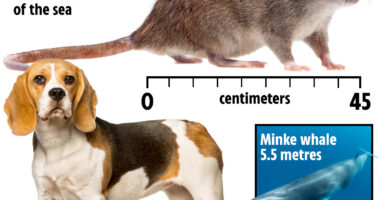SCIENTISTS may have found a way for humans to breathe on Mars in the future.
Space travel is tricky for numerous reasons but the lack of oxygen in space is one of the biggest obstacles.
Bacteria may be the answer to all our space breathing problems.
According to Mashable, cyanobacteria could be used by scientists to figure out a way in which humans could easily access oxygen in space.
Cyanobacteria take carbon dioxide and turn it into oxygen.
The bacteria is found in very hostile environments on Earth so it’s hoped cyanobacteria would be able to survive on Mars.


Some experts have suggested sending the bacteria to Mars and seeing if it could create oxygen for humans who end up there in the future.
Experiments have already proven that cyanobacteria can grow in a Martian-like environment.
Astrobiologist Cyprien Verseux previously worked on one of these experiments.
They explained: “Here we show that cyanobacteria can use gases available in the Martian atmosphere, at a low total pressure, as their source of carbon and nitrogen.
“Under these conditions, cyanobacteria kept their ability to grow in water containing only Mars-like dust and could still be used for feeding other microbes.
“This could help make long-term missions to Mars sustainable.”
Nasa has its sights set on sending humans to Mars and Elon Musk has big plans for a human colony on the Red Planet.
The SpaceX CEO has previously expressed desires to ferry to take one million humans to Mars by 2050.


By that time, scientists may have worked out a way for bacteria to provide oxygen on this long-haul mission.
Humans would still need to live in very protective shelters on Mars as the planet is a harsh environment with dramatic temperature changes and constant radiation exposure.
We pay for your stories!
Do you have a story for The US Sun team?











